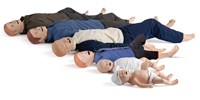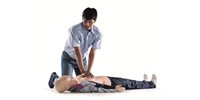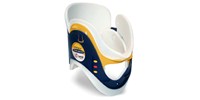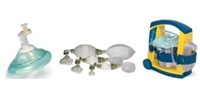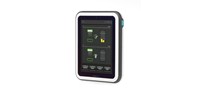Quality CPR matters
 In fact with every minute without CPR following sudden cardiac arrest, the probability of survival reduces by 7-10% per minute.2 When bystander CPR is delivered, the patient stands a better chance as the probability for survival reduces to 3-4% per minute. Overall, bystander CPR increases survival 2-3 times compared to no bystander CPR. 3,4,5
In fact with every minute without CPR following sudden cardiac arrest, the probability of survival reduces by 7-10% per minute.2 When bystander CPR is delivered, the patient stands a better chance as the probability for survival reduces to 3-4% per minute. Overall, bystander CPR increases survival 2-3 times compared to no bystander CPR. 3,4,5
When Health Care Professionals deliver quality CPR, research indicates survival rates can increase 4 times, compared to poor CPR.1,6,7,8
CPR in the Real World
The evidence base supporting delivery of quality CPR is growing and significant attention has been focused on raising awareness and improving education amongst lay rescuers performing bystander CPR. But a growing a number of studies both in-hospital and out of hospital report that CPR performed by healthcare professionals, the most frequent providers of CPR, could be significantly improved. 9,10
CPR assist devices and new technology have an important role to play in helping to address this gap in CPR skill and performance.
In fact survival rates from sudden cardiac arrest have been virtually unchanged for the past 25 years. However, recent studies from EMS systems in Wisconsin 11, Seattle 12, Kansas City 13 and Arizona 14 in the USA report significant increase in survival rates.
To improve survival rates, best practice suggests:
· Systematically measuring and documenting BLS and ALS performance
· Running post-event team debriefs
· Undertaking systematic evaluations of what actions had a positive impact on survival

References
1. Ko P.C. et al (2005), "Evaluating the quality of pre-hospital cardiopulmonary resuscitation by reviewing automated external defibrillator records and survival for out-of-hospital witnessed arrests", Resuscitation, 64:163-169.
2. Larsen M.P. et al (1993), "Predicting survival from out-of-hospital cardiac arrest: A graphic model", Ann Emerg Med, 22:1952-1958
3. Valenzuela T.D. et al, (1997), "Estimating effectiveness of cardiac arrest interventions: A logistic regression model, Circulation, 96:3308-3313
4. Holmberg M. et al, (2000), "Effect of bystander cardiopulmonary resuscitation in out-of-hospital cardiac arrest patients in Sweden", Resuscitation, 47:59-70
5. Abella B.S. et al (2005), "Quality of cardiopulmonary resuscitation during in-hospital cardiac arrest", JAMA, Vol. 293 No. 3
6. Van Hoeyweghen R. J., et al (1993), "Quality and efficiency of bystander CPR", Belgian Cerebral Resuscitation Study Group, Resuscitation, 47-52
7. Wik L. et al (1994), "Quality of bystander cardiopulmonary resuscitation influences outcome after pre-hospital cardiac arrest", Resuscitation, 195- 203
8. Gallagher J.E. et al (1995), "Effectiveness of bystander cardiopulmonary resuscitation and survival following out-of-hospital cardiac arrest", JAMA, Vol. 274, 24:1922-1925
9. Wik L. et al (2005), "Quality of cardiopulmonary resuscitation during out-of- hospital cardiac arrest", 2005, JAMA Vol. 293 No. 3
10. Abella BS, Alvarado JP, Myklebust H, Edelson DP, Barry A, O'Hearn N, Vanden Hoek TL, Becker LB. Quality of cardiopulmonary resuscitation during in-hospital cardiac arrest. JAMA. 2005; 293: 305-310.
11. Kellum M.J. et al (2006), "Cardiocerebral resuscitation improves survival of patients with out-of-hospital cardiac arrest", The American Journal of Medicine, 119:335-340
12. Rea T.D. et al (2006), "Increasing use of cardiopulmonary resuscitation during out-of-hospital ventricular fibrillation arrest. Survival implications of Guideline changes", Circulation, 114:2760-2765
13. Garza A. et al (2007), "Improvement in survival to discharge of cardiac arrest patients using novel out of hospital treatment protocol", American Heart Association - Scientific Sessions, Abstract Presentation
14. Bobrow B.J. et al (2007), "Statewide out-of-hospital cardiac arrest survival improves after widespread implementation of cardio cerebral resuscitation", American Heart Association - Scientific Sessions, Abstract Presentation

 USA
USA
